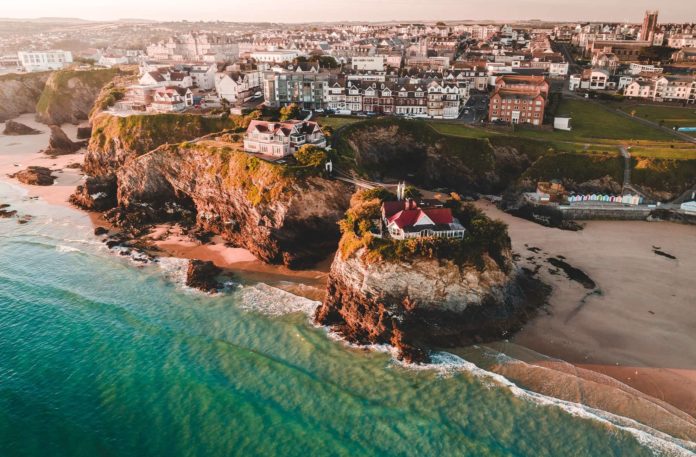[ad_1]
The picturesque village of Feock, on Cornwall’s south coast, is not an obvious place for a battle. It sits on a peaceful estuary just south of Truro, where the River Fal becomes the Carrick Roads on its way to the sea. On a rare sunny morning in mid-May, sailing boats and ribs bob contentedly at their moorings. Dog walkers amble along the beach. Beneath the placid surface, however, tensions are reaching boiling point as Cornwall prepares for its busiest summer ever. “It feels like the calm before the storm,” says Alastair Smith, who owns the kayak rental business on Loe beach. “We’re going to get hit, which is good. Normally I only get bookings on the day, but this year I’m booked for late August. People are thinking ahead.”
In recent weeks, however, Feock has become an epicentre of rising tension. In April, a local roofer, John Carnon, reported that his motorboat had been targeted, its hull damaged. One night a little later on, Mike Bastian, an oyster fisherman, was awoken by a call telling him his boat’s anchor had been cut and its battery smashed. Without the quick actions of his family, the boat would have sunk. The family called the police. Bastian said he was “gutted” and that “people like this need hounding out because they’re horrible people.” He put a sign up on his boat saying. “Please leave the boat alone, leaving friendly Feock on Tuesday.”
Bastian’s daughter, Erin, said she suspected that the vandals were local second-home owners, whose views might have been impeded by the boat’s mast. “People are protective of their lands, views and beautiful, massive second homes,” she told reporters. “I find it shocking that a local person could do this to another — to actively damage another’s livelihood so callously in such a calculated manner.” On a Facebook page, Sarah Hill weighed in: “I have never known such un-welcoming people in such a beautiful place to non-Cornish people. Always blaming outsiders first, without evidence. Shame the people aren’t as nice as Cornwall itself.” These are not isolated incidents. Up and down the coast, there are reports of property being damaged or going missing. If the cases in Feock are unusual, it’s because the aggression is being directed at the locals rather than the incomers. Often it is the other way round. In nearby St Agnes, Steve Ridholls, a former policeman, put up a sign saying: ‘No more second homes (our village is dying!!)’.
Nonetheless the vandalism encapsulates the struggles of a county where relations have long been fraught between the rich and poor, residents and tourists, locals and incomers, blow-ins or ‘emmets’, in Cornish slang. For all its gorgeous Grand Designs homes and manor houses, the county is also one of the most deprived in the UK, with stubbornly high unemployment and an economy increasingly reliant on tourism.
[ad_2]



